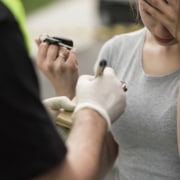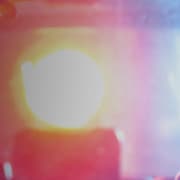The Legality of Deepfake Technology: A New Frontier in Criminal Defense
Deepfake technology, which uses artificial intelligence and machine learning to create hyper-realistic but fabricated pictures and videos among other types of content, has captured the attention of policymakers, law enforcement agencies, and legal professionals within the criminal justice system.
As the boundaries between reality and simulation blur with the proliferation of AI and ML tools, the legal world finds itself grappling with unprecedented challenges and opportunities.
What is Deepfake Technology?
Deepfake refers to a manipulated video, audio, or image that convincingly portrays someone as saying or doing things they never actually did. Powered by sophisticated algorithms, deepfakes can manipulate facial expressions, body movements, and even voice patterns to create a highly convincing imitation of you. This technology has both positive and negative applications, from enhancing entertainment and creative endeavors to raising serious concerns about misinformation, privacy, and ethical implications.
How can the Prosecution Use Deepfake Technology in an Alabama Criminal Proceeding?
Deepfake technology, while posing some challenges within the legal system, also offers opportunities for the prosecution in criminal cases. Here’s how deepfake technology could potentially be used by the prosecution:
- Authentication of Evidence: Prosecutors can use deepfake technology to enhance the authentication of evidence by creating digital replicas of physical evidence, such as weapons or objects relevant to the case.
- Witness Testimony Enhancement: The prosecution could create deepfake videos to enhance the testimonies of witnesses, victims, or experts for a more compelling and relatable narrative.
- Demonstrating Motive and Intent: Deepfakes could visually depict the defendant’s motive or intent by simulating scenarios that show their state of mind or the circumstances that led to the alleged crime.
- Rebuttal of Defense Claims: Deepfake technology could be used to create videos that challenge the defense’s claims, presenting alternative scenarios that counter the defense’s narrative.
- Impersonation Detection: In cases where impersonation is alleged, deepfake technology could be used to analyze voice patterns, facial expressions, and body language to detect signs of impersonation or manipulation in the defendant’s actions.
- Simulating Crime Scenes: The prosecution could use deepfakes to simulate crime scenes or accidents, providing a visual representation that supports their version of events and theories.
- Demonstrating Motive or Opportunity: By visually recreating interactions, deepfakes could help establish a motive or opportunity for the alleged crime, making it easier for the prosecution to convince jurors of the defendant’s guilt.
Challenges Posed by Deepfake Technology for Criminal Defense
Traditionally, evidence presented in court has been limited to tangible items and direct witnesses. However, deepfakes introduce a new layer of complexity, as they can potentially be used to create fabricated evidence that appears genuine.
- Authenticity of Evidence: As deepfake technology advances, distinguishing between genuine and fabricated content becomes increasingly difficult.
- Chain of Custody and Tampering: Unlike physical evidence, digital content can be easily manipulated, leading to questions about whether deepfake evidence has been tampered with, and if so, when and by whom.
- Cross-Jurisdictional Issues: With the global nature of the internet and technology, deepfake evidence could originate from different jurisdictions.
- Prejudice and Bias: Deepfake evidence, if presented skillfully, could influence jurors’ perceptions, potentially leading to biased judgments.
- Burden of Proof: The burden of proving the authenticity or fabrication of deepfake evidence falls disproportionately on the party seeking to challenge it, which is usually the defendant and their attorney.
Advantages of Deepfake Tech for Criminal Defense
The adoption of deepfake technology in criminal defense could provide a new toolkit for attorneys to effectively communicate their arguments, counter the prosecution’s evidence, and protect the rights of their clients.
- Witness Credibility Assessment: Deepfakes could be employed to assess witness credibility by analyzing their non-verbal cues and facial expressions, potentially revealing inconsistencies in their testimony.
- Enhanced Cross-Examination: Attorneys could leverage deepfakes to challenge prosecution witnesses by creating alternative scenarios or demonstrating inconsistencies in their testimony.
- Rehabilitation and Character Evidence: Deepfake technology can be used to create videos that showcase a defendant’s rehabilitation efforts or positive character traits to humanize the defendant and provide context for their actions, potentially influencing sentencing decisions.
- Demonstrative Evidence: Deepfakes can be employed to create accurate reconstructions of crime scenes, accidents, or events, helping jurors better understand the sequence of events and the circumstances surrounding the alleged crime.
- Witness Preparation: Your attorney may use deepfake technology to help witnesses prepare for cross-examination. By simulating tough questioning scenarios, witnesses are better equipped to stay composed and truthful on the stand.
- Establishing Motivation or Intent: Attorneys may use deepfakes to help reconstruct conversations or interactions leading up to an alleged crime, shedding light on a defendant’s state of mind and intent. This is highly useful in cases where proving intent is a key element.
- Expert Testimony Enhancement: When presenting complex scientific or technical concepts, deepfakes can be employed to create explanatory videos that simplify complex subject matter, making it more accessible to jurors and enhancing the effectiveness of expert testimony.
- Rebuttal and Impeachment: Defense attorneys may use deepfakes to challenge prosecution evidence by creating counter-arguments that visually demonstrate inconsistencies or alternative scenarios, allowing for effective cross-examination of witnesses.
- Expert Witness Collaboration: Attorneys could collaborate with experts in various fields to create deepfake content that illustrates technical or scientific concepts. This collaboration could result in more compelling and understandable presentations.
- Improving Jury Comprehension: Deepfakes could simplify complex legal arguments by turning abstract concepts into visual and auditory representations, aiding jurors in understanding intricate legal principles.
Get Legal Representation from a Resourceful Criminal Defense Lawyer
If you are facing criminal charges, choosing the experienced defense attorneys at the Alsobrook Law Group can be the big difference in an acquittal or conviction. Our attorneys are committed to protecting client rights, upholding innocence, and working towards the best possible outcome. We will work with a singular goal to have your charges dismissed or reduced as far as possible. To schedule your free consultation, call 334-360-9534 or reach us online.















